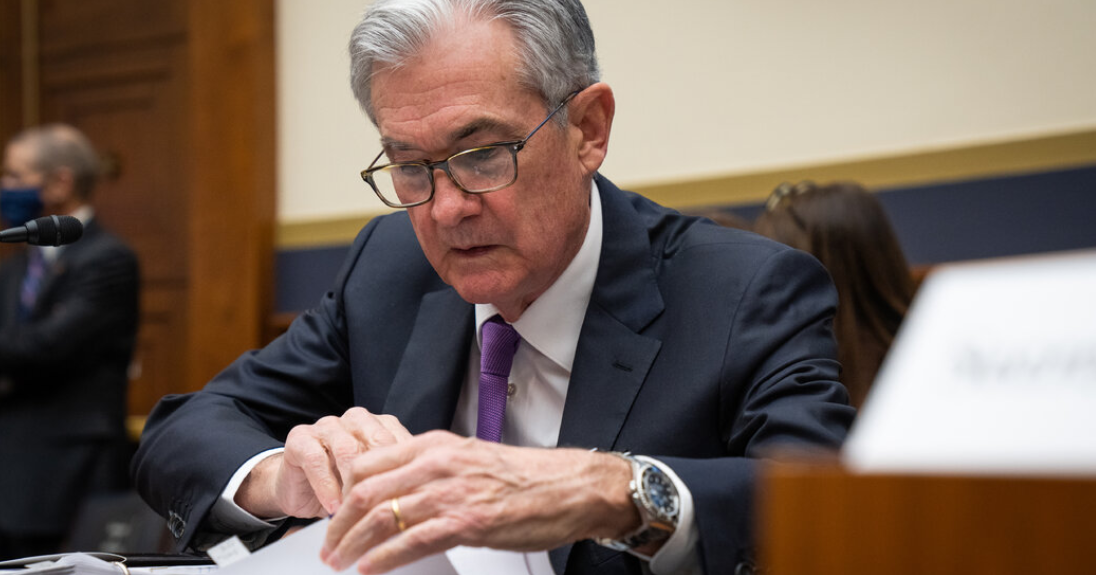Wed Jan 12, 2022
Wednesday / January 12
Powell's Senate testimony
In his testimony to the US Senate on Tuesday, Federal Reserve Chairman Jerome Powell announced that the US economy remained both healthy enough and needed tighter monetary policy.
Testifying before the U.S. Senate Committee on Banking, Housing and Urban Affairs at the confirmation session of his appointment by President Biden to a second term as Fed chair, Powell said he expected a series of rate hikes this year.
“As we move through this year, if things develop as expected, we’ll be normalizing policy, meaning we’re going to end our asset purchases in March, meaning we’ll be raising rates over the course of the year. At some point perhaps later this year we will start to allow the balance sheet to run off, and that’s just the road to normalizing policy,” he said.
Powell faced questions from both sides, both republican and democrat- who focused on inflation, which stands near its 40-year high. After declaring price volatility "transitory" for much of 2021, the Fed stopped using that phrase, acknowledging that inflation took longer than expected. The bank is expected to raise rates three or four times this year, in quarterly percentage points increments.
The higher interest rates will be aimed at controlling inflation by slowing the impact of more than $10 trillion in stimulus from the Fed and Congress.
“If we see inflation persisting at high levels longer than expected, then if we have to raise interest more over time, we will,” Powell said. “We will use our tools to get inflation back.”
US stocks
US stocks rose again on Tuesday after Wall Street had a rough start to the new year.
The tech-heavy Nasdaq Composite rose 1.41% to 15,153.45 after four days of losses.
The S&P500 rose 0.92% to 4,713.07, while the Dow Jones Industrial Average closed at 36,252.02, up 183.15 points, or 0.51%. It fell below 1.75% of the 10-year Treasury yield.
Indices made a volatile start to the year as the expectation that interest rates would rise put pressure on especially technology sector stocks.
Kim's missile test
North Korean state media said North Korean leader Kim Jong Un watched the country's hypersonic missile test early Tuesday, calling for the country to increase its strategic military forces.
Officials in South Korea and Japan on Tuesday detected North Korea's missile launch, which prompted the condemnation of officials worldwide and the UN secretary general's expression of concern.
The second "hypersonic missile" test in less than a week is in line with Kim's promise to strengthen the military with cutting-edge technology at a time when talks with South Korea and the United States are stalled.
After watching the test, Kim urged military scientists to "further accelerate efforts to steadily develop the country's strategic military strength, both in quality and quantity, and to further modernize the military," KCNA news agency reported.
Kim has officially participated in a missile test for the first time since March 2020.
Japan, the US and the EU condemned the test.
Russia-Ukraine tensions
In a statement after meeting with his US counterpart, Ukrainian Foreign Minister Dmytro Kuleba said that Ukraine and the United States are united to defuse the standoff with Moscow through diplomacy and are working closely to deter "Russian aggression".
Kuleba spoke with Foreign Minister Antony Blinken a day after the United States called on Russia to withdraw an estimated 100,000 troops from near the Ukrainian border at the Geneva talks.
Russia, on the other hand, held military exercises in regions near Ukraine at the same time, raising doubts about Moscow's willingness to de-escalate tensions as negotiations continue.
Members of the NATO alliance will meet with Russian officials in Brussels on Wednesday. Further talks are scheduled at the Organization for Security and Co-operation in Europe (OSCE) in Vienna on Thursday.
US State Department spokesman Ned Price said Blinken had assured Kuleba that without Ukraine there would be no important talks about Ukraine.
Iran talks
France's foreign minister said on Tuesday that although Iran and world powers had made some progress at the end of December, it was still far from any agreement to revive the 2015 nuclear deal.
Indirect talks between Iran and the United States on salvaging the 2015 Iran nuclear deal resumed on January 3. Western diplomats have indicated they hope to make a breakthrough in late January or early February, but sharp divergences remain as the most pressing issues are still unresolved.
"The discussions are ongoing. The negotiations are slow, very slow, and this creates a vacuum that jeopardizes the chances of finding a solution that respects the interests of all parties," Jean-Yves le Drian said at the parliamentary session.
